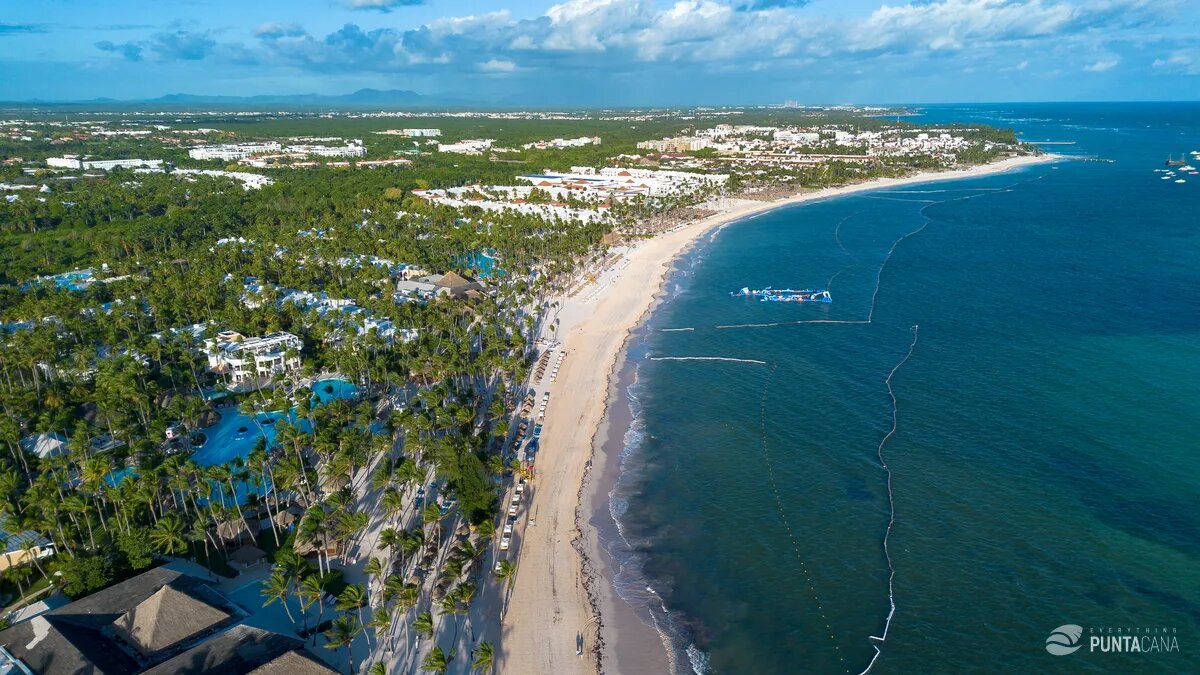What If Something Goes Wrong? How to Avoid Rental Scams in Punta Cana
Understanding Rental Scams in Punta Cana

What If Something Goes Wrong? How to Avoid Rental Scams in Punta Cana
Punta Cana, with its stunning beaches and vibrant culture, is a dream destination for many travelers. However, the allure of this paradise can sometimes be overshadowed by the lurking threat of rental scams. By understanding the various tactics employed by scammers, tourists can better protect themselves and enjoy a worry-free vacation.
1. Common Scam Tactics
Scammers in Punta Cana have developed several creative methods to deceive unsuspecting tourists. Phantom Listings are a prevalent tactic, where scammers post non-existent properties with appealing photos and descriptions to lure potential renters. These listings often feature below-market prices to attract more interest. Another common strategy is the Bait and Switch, where the property advertised is vastly different from the one actually available, often of a much lower standard.
Scammers may also employ Fake Owner Profiles, creating elaborate backstories to gain trust. They often use stolen photos and identities to enhance their credibility. Additionally, some scammers may request full payment upfront, promising that the property will be held exclusively for the renter, only to disappear once the transaction is complete.
2. The Rise of Online Scams
With the increasing reliance on digital platforms for travel arrangements, online rental scams have surged. Scammers exploit popular websites and social media platforms, taking advantage of the anonymity the internet provides. Websites like Craigslist and Facebook Marketplace are common hunting grounds due to their less stringent verification processes.
Online rental scams often involve sophisticated phishing techniques. Scammers may create fake websites that mimic legitimate rental platforms, diverting unsuspecting users to these fraudulent sites where they input sensitive information. It’s essential to remain vigilant and stick to well-known, reputable platforms when searching for rentals.
3. Warning Signs of a Scam
Recognizing the red flags of a potential scam can save tourists from falling prey to fraudulent schemes. One significant warning sign is Unrealistic Prices. If a deal seems too good to be true, it probably is. Another indicator is Pressure to Pay Quickly. Scammers often urge immediate payment, using aggressive tactics or claiming the property is in high demand.
Lack of proper documentation or refusal to provide a lease agreement is another red flag. Legitimate property owners will always be willing to provide necessary documentation. Additionally, if a property owner is evasive or reluctant to communicate via video calls or in-person meetings, it could indicate a scam. Always verify the identity of the person you are dealing with and cross-check the property details through multiple sources.
By staying informed and cautious, tourists can navigate the rental market in Punta Cana safely, ensuring that their dream vacation remains just that—a dream and not a nightmare.
Researching Safe and Legitimate Rental Options
Avoiding rental scams in Punta Cana begins with thorough research and vigilance. By understanding the proper avenues for finding legitimate rental options, you can protect yourself against common fraudulent schemes.

Punta Cana, drone view
1. Using Reputable Platforms
Opting for well-established rental platforms is a critical first step in securing a legitimate property. Websites like Airbnb, VRBO, and Booking.com have built-in safety measures, including verified reviews and secure payment methods, reducing the risk of falling prey to a scam. These platforms often provide customer service support to address any discrepancies, offering an additional layer of protection.
- Ensure the platform offers secure payment options and avoid transactions outside the official website.
- Look for listings with a high number of positive reviews and consistent feedback over time.
- Utilize the platform’s communication tools to keep all interactions documented.
2. Checking Reviews and References
Reviews are a powerful tool in validating the credibility of a rental property. When assessing reviews, focus on those that provide detailed information about the property and the host.
Contacting previous tenants or references provided by the property owner can further verify the legitimacy of the rental. This step offers a firsthand account of the experience and can highlight any undisclosed issues.
Evaluating Rental Property Reviews
| Aspect | What to Look For | Red Flag |
|---|---|---|
| Property Condition | Consistent praise for cleanliness and amenities | Multiple complaints about maintenance issues |
| Host Interaction | Responsive and helpful communication | Lack of communication or negative interactions |
| Location | Accurate description and positive feedback on surroundings | Discrepancies between description and reviews |
3. Verifying Property Ownership
Ensuring that the property is genuinely owned by the person renting it out is crucial. This can be achieved by requesting official documents such as a title deed or utility bill, which should match the owner’s identification.
- Contact local property management companies or real estate agents in Punta Cana to confirm ownership.
- Use governmental property records or databases if available to cross-verify ownership details.
- Be cautious of excuses for not providing documentation, as this can be a significant red flag.
By taking these preventative measures, you can significantly reduce the risk of encountering rental scams in Punta Cana, ensuring a safe and enjoyable vacation experience.
Communicating with Property Owners
Effective communication with property owners is a cornerstone of a successful rental experience in Punta Cana. By asking the right questions, adhering to proper communication etiquette, and recognizing unusual requests, you can ensure a smooth transaction and avoid potential scams.

Punta Cana
1. Questions to Ask
Asking the right questions is crucial when communicating with property owners. It not only helps verify the legitimacy of the rental but also clears up any uncertainties you might have about the property.
- Ownership Verification: Ask for documents proving ownership or management rights. Legitimate owners will be willing to provide copies of deeds or management agreements.
- Rental Terms and Conditions: Clarify what is included in the rental fee, such as utilities, internet, and cleaning services. Ask about cancellation policies and any potential fees.
- Local Recommendations: Inquire about nearby amenities or attractions. Genuine owners usually have good knowledge of the area and can offer helpful advice.
2. Email and Phone Etiquette
Understanding proper email and phone communication etiquette can help you establish a professional and trustworthy relationship with the property owner.
- Email Communication: Always use a respectful and formal tone in your emails. Clearly state your questions or concerns and avoid using slang or overly casual language.
- Phone Calls: When speaking over the phone, ensure you are in a quiet environment to avoid miscommunication. Take notes during the call to reference later.
- Follow-Up: After initial contact, follow up with a summary email that recaps your understanding of the conversation. This helps to confirm details and provides a written record.
3. Spotting Unusual Requests
Unusual requests from property owners can be a red flag for scams. Recognizing these can save you from potential pitfalls.
- Payment Requests: Be wary of owners who request full payment upfront or prefer untraceable payment methods like wire transfers. Legitimate rentals typically offer secure payment options.
- Personal Information: If a property owner asks for excessive personal information, such as a social security number, consider it a warning sign. Only provide necessary information.
- Urgency and Pressure: Scammers often create a sense of urgency to rush you into a decision. Take your time to verify information and make an informed decision.
Communicating effectively and safely with property owners is essential to avoid rental scams. By asking the right questions, maintaining professional communication, and recognizing unusual requests, you can protect yourself and enjoy your stay in Punta Cana with peace of mind.
Securing Your Rental Agreement
Securing a rental agreement in Punta Cana is a vital step to ensuring a safe and enjoyable stay. Understanding the nuances of rental contracts, making secure payments, and knowing when to seek legal assistance are all crucial in safeguarding your vacation plans.
1. Understanding the Contract
Rental contracts can sometimes be complex, but understanding them is indispensable. Key elements of a rental contract include the rental period, total cost, payment terms, cancellation policy, and any additional fees. It is essential to ensure that these details are clearly stipulated and agreed upon by both parties.
Here are a few practical tips for understanding rental contracts:
-
Read the contract thoroughly and ask for clarifications on any ambiguous terms or conditions. Do not hesitate to ask for a translated version if it’s not in your native language.
-
Ensure that the contract includes a detailed description of the property, including amenities and any house rules.
-
Be wary of contracts that are missing signature fields or offer excuses for not providing a written agreement.
-
Verify the identity of the person signing the contract on behalf of the property. Request identification if necessary.
2. Making Secure Payments
When it comes to securing a rental, payment security is paramount. Utilizing secure payment methods can prevent unauthorized transactions and ensure you are protected against fraudulent activities.
Consider the following secure payment methods:
-
Use established online payment platforms such as PayPal, which offer buyer protection in case the rental turns out to be a scam.
-
Credit cards are preferred over debit cards, as they often offer fraud protection and the possibility to dispute charges.
-
Avoid wire transfers or cash payments, as these are hard to trace and recover if something goes wrong.
-
Always ensure that the payment process is conducted through a secure and encrypted connection (look for “https” in the web address).
3. Seeking Legal Assistance
In certain situations, seeking legal assistance can be crucial to ensuring your rental agreement is legitimate and to resolve any disputes that may arise. Knowing when and how to engage legal help can save you from potential losses.
Here are some instances when legal assistance might be necessary:
-
If the rental contract seems overly complex or includes unfamiliar legal jargon, consulting with a legal expert can provide clearer understanding and peace of mind.
-
Should any issues arise regarding the fulfillment of the contract terms, a legal advisor can help negotiate and mediate with the property owner.
-
If you suspect fraudulent activity, legal assistance can guide you in taking appropriate actions to protect your interests.
Legal resources in Punta Cana can be accessed through local law firms experienced in real estate and rental agreements. It’s advisable to choose a lawyer who is familiar with Dominican Republic property laws. Please note: The information here is only for informational purposes. Verify with qualified legal professionals for accurate advice.
What to Do If You Fall Victim to a Rental Scam
Falling victim to a rental scam can be a distressing experience, especially when you’re far from home in a place like Punta Cana. Knowing the right steps to take can help mitigate the damage and potentially recover your losses.
1. Immediate Actions to Take
Upon realizing you’ve been scammed, act quickly to minimize the potential damage. Here are the immediate steps you should consider:
- Contact Your Bank or Credit Card Company: If you’ve made a payment through a bank transfer or credit card, reach out to your financial institution immediately. They may be able to stop the payment or initiate a chargeback process.
- Gather Evidence: Collect all communications, receipts, and any other documentation related to the transaction. This will be crucial for reporting the scam and potentially recovering your losses.
- Secure Your Accounts: If any personal information was shared, such as passwords or banking details, change these immediately to prevent further fraud.
2. Reporting the Scam
Reporting the scam not only aids in your recovery efforts but also helps in preventing others from falling victim. Here’s how to proceed:
- Local Authorities: Report the scam to the local police in Punta Cana. They may have resources or advice specific to the area.
- Embassy or Consulate: Contact your country’s embassy or consulate in the Dominican Republic. They can provide assistance and guidance on the next steps.
- Online Platforms: If the scam occurred through an online platform, report it to the platform. Websites like Airbnb, Vrbo, or others have processes in place to handle such complaints.
- Federal Trade Commission (FTC): For U.S. citizens, report the scam to the FTC. They track scams and can take action against fraudsters.
Remember, reporting a scam is crucial not only for your case but also to help curb the spread of fraudulent activities targeting unsuspecting tourists.
3. Recovering Your Losses
Though challenging, there are a few avenues you might explore to recover your losses:
- Insurance Claims: Check if your travel insurance covers scams. Some policies include fraud protection that may reimburse your losses.
- Legal Action: Consult with a legal advisor about the possibility of pursuing legal action against the scammer. While this might not always be feasible, it can be an option depending on the circumstances.
- Community Support: Engage with online travel communities or forums. Fellow travelers might have ideas or resources that could aid in your recovery.
The path to recovering from a rental scam can be arduous, but taking these steps can help you regain control and potentially recuperate some of your losses. Stay vigilant and informed to protect yourself against future scams.
Frequently Asked Questions
What are common signs of a rental scam in Punta Cana?
Common signs of a rental scam include offers that are too good to be true, requests for payment by wire transfer or cash only, lack of a formal rental agreement, and a landlord who is unavailable for a phone call or in-person meeting. Trust your instincts if something feels off.
How can I verify the legitimacy of a rental listing in Punta Cana?
To verify a rental listing, search for reviews and feedback from previous renters. Use reputable rental platforms that offer reviews and verification processes. You can also reverse image search the listing photos to see if they appear elsewhere with different contact information.
Is it safe to pay a rental deposit before seeing the property in person?
It is generally advised to avoid paying a deposit before you have seen the property. If you must secure a rental before visiting, use secure payment methods that offer fraud protection. Always ensure the legitimacy of the rental agreement before making any payments.
What should I do if I suspect I've encountered a rental scam?
If you suspect a scam, cease communication with the potential scammer and do not transfer any money. Report the scam to the rental platform and local authorities in Punta Cana. This will help prevent others from becoming victims.
Can local real estate agents help prevent rental scams in Punta Cana?
Yes, working with a reputable local real estate agent can help you avoid scams. Agents often have verified listings and can assist in ensuring all transactions are legitimate. Make sure the agent is licensed and has good reviews.
Are vacation rental platforms like Airbnb safe to use in Punta Cana?
Vacation rental platforms like Airbnb generally provide a level of safety with verified hosts and reviews. However, scams can still occur, so be sure to read reviews carefully and communicate directly through the platform. Always use the platform’s payment system for added security.
What legal actions can I take if I've been scammed in a rental agreement in Punta Cana?
If you’ve been scammed, contact local authorities and file a police report. You should also notify your bank or payment service if you have transferred money. Consulting with a local attorney familiar with Dominican Republic law may help in recovering losses or pursuing legal action.
Consult a qualified legal professional for personalized advice, as regulations and legal options can change.
How can I safely secure a rental before my arrival in Punta Cana?
To safely secure a rental before arrival, use reputable rental services, verify the property’s legitimacy, and avoid making payments until you have a signed agreement. Opt for payment methods that offer fraud protection and communicate through verified channels.
What are the risks of renting a property in Punta Cana from a private owner?
Renting from a private owner carries risks such as less oversight and fewer guarantees. Ensure the owner provides a formal rental agreement, and verify their identity through references and reviews.
Exercise caution and consider using established rental platforms for added security.
Updated on: . Author:
